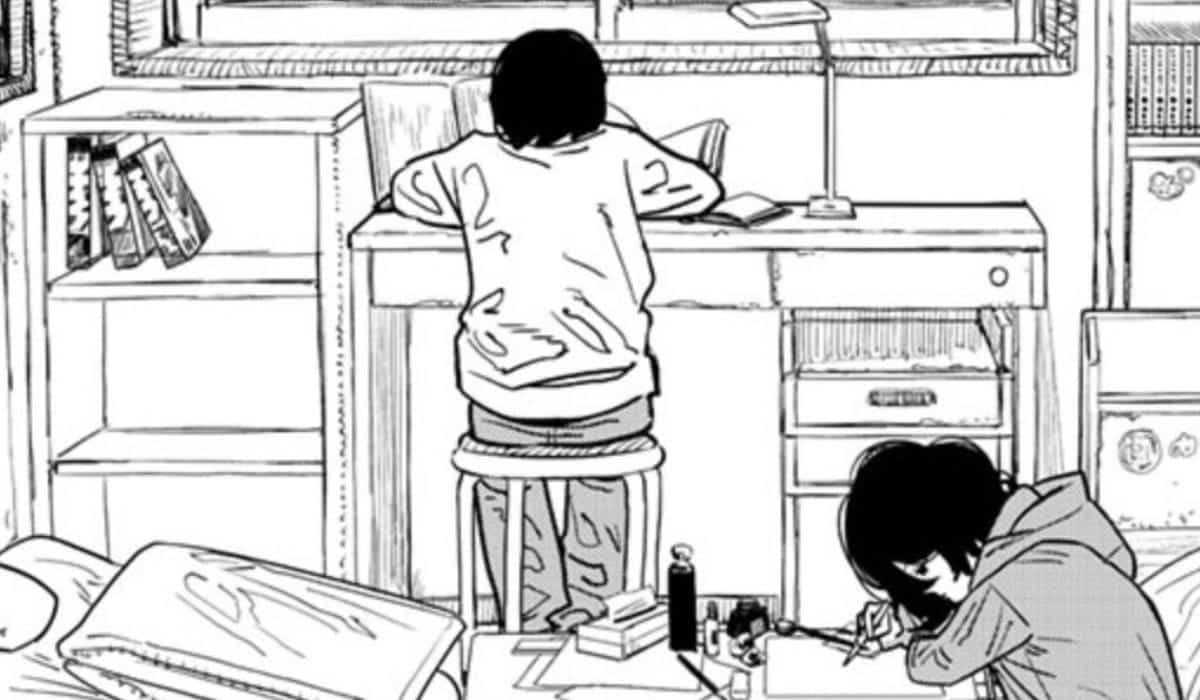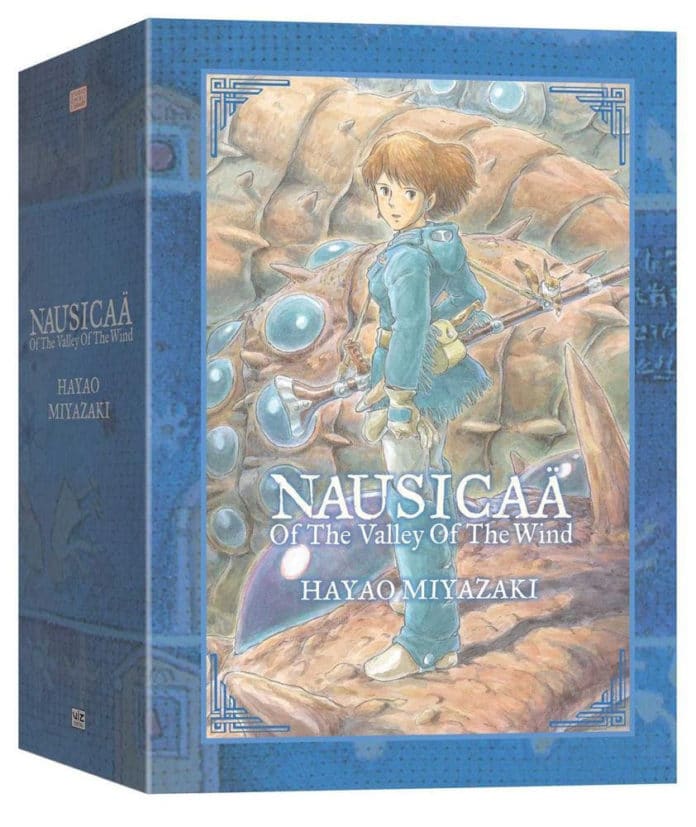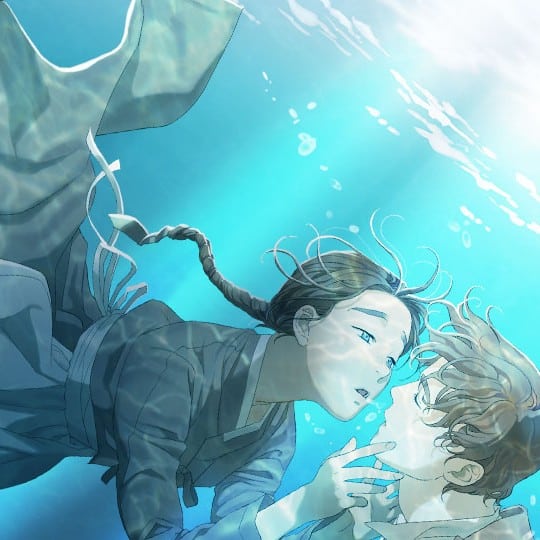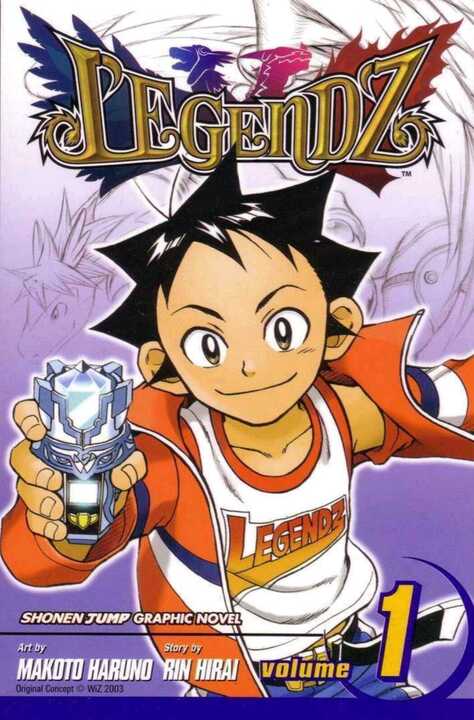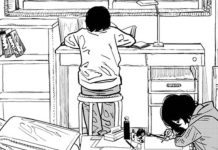There are two universal truths in today’s rapidly changing comics industry. The first is that Dog Man is the defining comic of our era. The second is that more people are reading manga and Webtoons (aka vertical scroll comics) than ever before. Therefore we at The Comics Beat have chosen to embark on a new venture: Beat’s Bizarre Adventure. Every week we’ll have three writers recommend some of their favorite books and series from Japan, Korea and elsewhere. This week we have Hayao Miyazaki’s manga magnum opus, a gorgeous fairy tale retelling, and, of course, monster battling.
Nausicaa of the Valley of the Wind
Writer/Artist: Hayao Miyazaki
Translator: David Lewis and Toren Smith (Studio Proteus)
Touch-Up Art and Lettering: Walden Wong
Editor (1st Edition): Annette Roman
Editor (Studio Ghibli Library Edition): Elizabeth Kawasaki
Deluxe Edition Design: Yukiko Whitely
Deluxe Edition Editor: Masumi Washington
Publisher: Viz
Long ago, humanity destroyed itself in the Seven Days of Fire. Now its dregs cling onto life in the Sea of Corruption. Some seek mastery of the world and its remaining people. But there is the princess Nausicaa, a young woman seeking equilibrium between humanity and the Sea of Corruption. Her innate goodness is her strength–and most terrifying weapon.
Nausicaa of the Valley of the Wind is the first full-length film by Hayao Miyazaki to feature his own world and characters. It was also his first collaboration with composer Joe Hisashi. Nausicaa planted the seed that would become Studio Ghibli two years later. Yet it only adapts part of the story. For the full tale, you must read the manga, which was serialized from 1982 to 1994 over seven volumes and hundreds of pages.
Miyazaki’s art owes as much to Moebius as it does to manga. His panels are stuffed with detail and cross-hatched line work. Some might call Nausicaa overstuffed. I think it’s a labor of love, and an odyssey. Miyazaki is not the same artist at the end of the comic that he was at the start. His characters, like Nausicaa’s rival Kushana, evolve from storybook archetypes into co-protagonists. Even the God Warrior, a figure of elemental terror in the film, is made sympathetic when it finally appears in the comic.
The Nausicaa manga was followed by 1997’s Princess Mononoke in 1997. It was Miyazaki’s most serious film to that point, perfectly in keeping with Nausicaa’s last two volumes. The finale in particular is one of the biggest swings in Miyazaki’s career. I don’t know if I’d say the Nausicaa manga is as polished as Miyazaki’s best films. But I’m in awe of its range, and the portrait it paints of an artist evolving over the course of a decade. — Adam Wescott
Whale Star: The Gyeongseong Mermaid
Writer/Artist: Na Yoonhee
Platform: WEBTOON
Loosely retelling “The Little Mermaid” fable, Whale Star takes us back to the year 1926, right into the middle of a 35-year-long period when Korea was under the colonial rule of Japan. Su-A is a young handmaiden to the daughter of a wealthy family. On her day off, he finds a wounded man on the shore. She nurses him back to health secretly since he’s a part of the Korean Independence Movement. She does one last favor of relaying a note to his colleagues, only to be poisoned by them. Su-A survives but loses her ability to speak, which marks the beginning of a long and complicated journey.
Whale Star is Na Yoonhee‘s English debut. While Su-A is enamored by this young, good-looking, soft-spoken, charismatic man before her, romance is only one of the layers in Whale Star‘s deep and rich ocean. The cast is full of characters that come from different backgrounds and their stories matter. The historical and political side of Whale Star isn’t just a backdrop either. Whale Star‘s cast come into conflict through the choices they make, or get cold feet when faced with violence, injustice, loss, and the terrifyingly uncertain future colonization and opposition to it brings.
This series is beautiful inside and out. Muted earthy tones and the light, paper-like grainy texture give the series a nostalgic feel. The “Little Mermaid” illustrations that grace us in the first handful of chapters are jaw-dropping, and the art style is consistent throughout. Na Yoonhee is skillful in creating beautiful sceneries and conveying emotion.
Whale Star is not your usual weekend comfort read. It’s bittersweet, with tragic pasts, bleak futures, and death awaiting every step of the way. However, the hope the main characters carry with them against all odds and their love for each other that comes in many shapes and forms glimmer beautifully. It’s a must-read! — Merve Giray
LEGENDZ
Story: Rin Hirai
Art: Makoto Haruno
English Adaptation: Shaenon K. Garrity
Translation: Akira Watanabe
Touch-Up Art & Lettering: Susan Daigle-Leach
Cover Design & Graphics: Sean Lee
Editor: Yuki Takagaki
Publisher: VIZ Media
It was the early 00s. Pokémon had taken the world by storm. The market capitalized on stories involving battling monsters and their tamers. In Japan and around the world, gashapon (collectible vending machine items) fulfilled that itch for instant gratification with gambling, thrill seeking and small cute things. So why not combine the two?
Legendz by Rin Hirai and Makoto Haruno follows Ken Kazaki, an elementary school student who loves Legendz – a battle game fought between players and their monsters – and his partner Shiron. As the series goes on Ken enters the Legendz Carnival, a big time tournament. There he meets other characters that, like him, possess incredibly powerful partners.
An underdog hero, power scaling and rivals that become friends. Legendz is a four volume series that distills this classic story structure to its basics. What makes Legendz worthy of recommendation is that it’s filled with genuine love for battle monster stories. Haruno’s artwork in particular is so full of life and infectious. It’s a joy to read.
The series is unfortunately long out of print, but the books are easy to find on the aftermarket. Hopefully one day VIZ will re-release them in an omnibus format or even put them up on one of their apps. If you like Black Clover by Yūki Tabata then I think you will enjoy Legendz. Both have fun with genre tropes in ways that make for a memorable experience. — Derrick Crow



